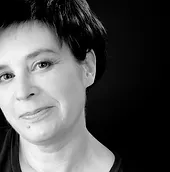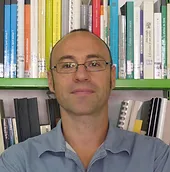
THINK THE UNTHINKABLE – SUSTAINABLE DEVELOPMENT GOALS IN EUROPEAN LIBRARIES FUNDED THROUGH EUROPEAN STRUCTURAL AND INVESTMENT FUNDS 2021-2027
PENSARE L’IMPENSABILE -GLI SDGS NELLE BIBLIOTECHE EUROPEE DA FINANZIARE CON I FONDI STRUTTURALI E DI INVESTIMENTO IN EUROPA 2021-2027
A cura dell’Area biblioteche del Comune di Milano e di EBLIDA con la collaborazione del Goethe-Institut Mailand
By Area biblioteche del Comune di Milano and EBLIDA in collaboration with Goethe-Institut Mailand
(è prevista la traduzione simultanea)
(simultaneous translation is provided)
Introduction by
GIUSEPPE VITIELLO, EBLIDA Director
His year, the international session of the 25th Stelline Conference is co-organised by EBLIDA and the City of Milan. Its topic: Sustainable Development in European libraries. It will be the first time that tools and services made available within the EBLIDA SDG European House will be presented to and tested by a wider audience.
Stefano Parise, EBLIDA Vice President, will introduce the 2019-2022 EBLIDA Strategic Plan, its lobbying effort with European institutions and its work on library legislation and policy-making in libraries. He will also highlight the EBLIDA projects linked with the socio-cultural and educational impact of libraries. In particular, the EBLIDA Matrix will be presented and its comprehensive package which describes EU programmes, goal after goal and programme after programme.
Marjolein Oomes, researcher at the Royal Library of the Netherlands, will point out that, although the role of libraries in realizing the global Sustainable Development Goals is widely emphasized in the library world, attempts to actually make the translation of library impact-indicators into these goals are scarce, so far. Christophe Evans, Head of the Research Department of the Bibliothèque Publique d’Information in Paris, will underline some of the factors that may undermine the usefulness of impact studies in the field of libraries. Individual perceptions, may alter data and undermine the scientific validity of the results of the impact studies. Moreover, data trends may infer judgements which are not supported by logical evidence.
Two SDG stories will be presented in Milan. The first was implemented in 2012 in Serbia in the Jagodina municipality, where half the population lives in villages and 70% of the economy is agricultural. The Agrolib project revitalised five rural libraries and endowed them with modern technologies and services aiming to link farmers with the State, farmers among themselves and farmers with potential sellers and buyers of agricultural products, machinery and services. The second SDG Story is a citizen science project focused on air quality in Brussels and aims to create awareness about air pollution in European cities. Transport & Development, the NGO campaigning for clean air, used the capillarity of the library network in Brussels to install sensors in libraries which regularly check air quality. Moreover, sensors are given to library users who install them at home.
The round table following the presentation of SDG stories will see the participation of both SDG story-tellers (Pierre Dornier and Vesna Crnkovic) and library evaluators (Christophe Evans, Marjolein Oomes and Ulla Wimmer). Library evaluators will evaluate SDG stories under an SDG perspective and will adopt / adapt SDG indicators to them. Evaluators will assess to what extent the SDG projects in libraries contribute to the attainment of SDGs.
The final session – SDGs in action – will be dedicated to free access to information – what can be considered a basic mission of libraries. In particular, SDG 16 Target 10: “Ensuring public access to information and protecting fundamental freedoms” will be evaluated in libraries. Leonie Martin, President of the Young European Federalists, will expand upon the political meaning of fake news and its impact on the society. In this respect, libraries can play a big role in supporting the formation of a well-informed citizenry, encourage democratic participation and build up a transparent political decision-making process. Giampiero Gramigna, Senior Analyst at NewsGuard, will present NewsGuard’s fight against fake news, disinformation and misinformation. NewsGuard provides credibility ratings and detailed “Nutrition Label” reviews for the news and information websites that account for 90% of online engagement with news in each country in which it operates (France, Germany, Italy, the U.K., and the U.S., with more coming soon). European libraries rattle off figures and quantitative statistics. These statistics do not shed enough light on the intrinsic value of the library to the user. In the case of fake news and how libraries manage them, other indicators may be needed, which take into account methodologies provided by library impact studies, SDG policies at European level and UN/Eurostat/NGO indicators where inclusive societies are evaluated for sustainable development (SDG 16.10).
STEFANO PARISE, EBLIDA Deputy President
SDGs at the heart of libraries: the EBLIDA SDG European House – SDGs nel cuore delle biblioteche: La EBLIDA SDG European House
- Opening remarks: Towards an administrative culture of sustainability – Verso una cultura amministrativa della sostenibilità
ULLA WIMMER, Humboldt-Universität zu Berlin
SDGs and Library Policies – Gli SDGs e le politiche bibliotecarie
CHRISTOPHE EVANS, Head, Research Dpt, BPI Centre Pompidou
Demonstrating library effects: methodological proposals – Come provare l’impatto delle biblioteche: proposte metodologiche
MARJOLEIN OOMES, Researcher, Royal Library, Netherlands
Sustainable Development Goals as guidelines for library impact assessment – SDGs come line direttrici per misurare l’impatto bibliotecario
For a long time, the public library sector could naturally count on government support. Their importance for society was undisputed and library policy received broad political support. In the past ten to fifteen years this changed dramatically. Society digitized rapidly, the preferences and behavior of readers and information seekers changed and subsidy relationships between cultural and government institutions became more businesslike. In this climate local governments and other authorities more and more started to question the self-evidence of their investment of taxpayers’ money in the public library systems. As a result, the pressure on libraries increased to support and illustrate their role in society with a better evidence base. A worldwide search for information about the value of libraries and their impact on society started and brought about various research programs. The impact reports and advocacy initiatives that emerged from these programs were accompanied by evidence indicating or proving the important role that libraries play in creating strong and sustainable communities.
So far, only a few attempts have been made to link evidence of library impact to the Sustainable Development Goals as formulated by the United Nations. Because these global goals reflect the fields that are universally considered to be relevant for community development, they provide a framework for assessing and communicating library impact in a way that appeals to government officials on both local, national, European and global levels. An important challenge for library impact research in the coming years is therefore to develop indicators and provide evidence on the contribution and the role of libraries in achieving global goals of sustainable development.
Q&A Session – Colloquio con il pubblico
Break
- SDGs in action – SDGs in azione.
GIUSEPPE VITIELLO
Financing SDGs-oriented library projects through the 2021-2027 European Structural and Investment Funds (ESIF) 2021-2027, Il finanziamento dei progetti bibliotecari SDGs attraverso ESIF 2021-2027
VIRGINIA PADOVESE, NewsGuard, New York
SDG 16 Target 10: EBLIDA and NewsGuard allied against fake news – SDG 16 Target 10: EBLIDA e NewsGuard alleate contro le fake news
THOMAS KAARSTED, Library Deputy Director
Citizen Science projects and SDGs at the University of Southern Denmark – Progetti di Citizen Science e SDGs nell’SDU
CLARA ORTEGA, Ministerio de Cultura, Spain
ALICIA SELLES CAROT, President FESABID
Library Policy and SDGs in Spain – Le politiche bibliotecarie e gli SDGs in Spagna
TON VAN VLIMMEREN, Director, Public Library Utrecht
SDGs in libraries during the Covid-19 crisis – Gli SDGs nelle biblioteche durante la crisi Covid-19
Q&A Session – Colloquio con il pubblico
TON VAN VLIMMEREN, President EBLIDA
Concluding remarks – Conclusioni
-

Giuseppe Vitiello
Senior Adviser, Europe
-

Stefano Parise
Direttore Area Biblioteche del Comune di Milano
-

Ulla Wimmer
Humboldt-Universität zu Berlin
-

Christophe Evans
Head, Research Dpt, BPI Centre Pompidou
-

Marjolein Oomes
Researcher, Royal Library, Netherlands
-
Virginia Padovese
NewsGuard, New York
-
Thomas Kaarsted
Library Deputy Director
-
Clara Ortega
Ministerio de Cultura, Spain
-
Alicia Selles Carot
President FESABID
-
Tom Van Vlimmeren
Director, Public Library Utrecht